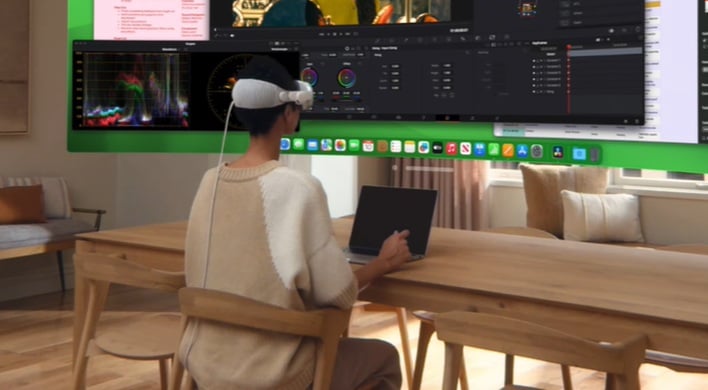A Faster Vision Pro Is Inbound But When Will Apple Release A Cheaper Model?
Apple is surely not comfortable lagging in the AI race, especially at a time when one of its leading AI developers (Ruoming Pang) has jumped ship to its competitor (Meta) due to a reported $200 million enticement. Apple has promised that the upcoming version of Vision Pro will have better components designed to fuel it for Artificial Intelligence workloads and features.
Apple also plans to reduce the headset's weight and enhance performance with faster processors. In addition to the proposed Vision Pro, Apple has revealed goal to dominate the smart glass category as well, with ultra-modern AR glasses.

An improved version of the Apple Vison Pro which combines both Augmented Reality (AR) and Virtual Reality (VR) could indeed delight users as they experience an enhanced spatial computing platform. However, caution should also be taken regarding its suitability as an everyday gadget, considering its potential impact on users. Last year, when I interviewed Dr. Rabindra Ratan, a leading associate professor at Michigan State University and a sporadic visiting scholar at Stanford's Virtual Human Interaction Lab, these were his remarks. "The immersive nature of VR and AR could influence mood and behavior, offering therapeutic benefits for children. Conversely, inappropriate content, toxic social interactions, or excessive use could contribute to anxiety, social withdrawal, or unexpected effects on cognitive development."
He further explained that "there is need for awareness and moderation to ensure that virtual experiences complement, rather than diminish, essential real-world experiences and interactions that are critical for mental development."
While we hope that the upgraded version of the Vision Pro will be cheaper and more comfortable, we should also remember that immersive experiences delivered by mixed reality (AR and VR) headsets like the Vision Pro are not a substitute for human interaction.
Images Courtesy of Apple

